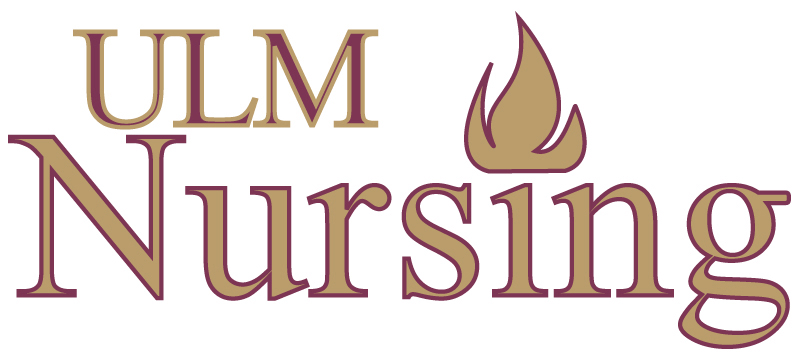

The University of Louisiana Monroe continues to set the standard in health care education with the addition of the Adult-Gerontology Primary Care Nurse Practitioner (AGPCNP) program.
July 5, the Kitty DeGree School of Nursing begins its first class in AGPCNP, which is a Master of Science in Nursing (MSN) degree. Approximately 20 registered nurses are enrolled, according to Dr. Rhonda Hensley, Associate Director of the ULM Graduate Nursing Program and associate professor in the school of nursing.
The AGPCNP joins the Gerontological Clinical Nurse Leader (CNL) program, which began in 2016 and will graduate its first class in December 2017.
AGPCNPs are educated to provide comprehensive treatment of acute and primary health care needs of adults and geriatric aged patients.
CNL students focus on mid-level and upper management in agencies working with the healthcare of all patients, with an emphasis on gerontology.
In the present, looking to the future
These programs are two of the most highly demanded MSN degrees in nursing today, according to Director of Nursing Emily Doughty. Doughty, who retires June 30, and Hensley, were instrumental in securing both degrees at ULM.
“We felt like we needed to add the gerontology to prepare our graduates for the skills needed for the future of health care (management and gerontology),” said Doughty. “In the health care arena, there is a major concern about a workforce educated to care for the rapidly growing elder population.”
Doughty said local health care professionals came to ULM asking for more advanced education for nurses and more MSN programs.
“Practicing professionals in the community approached us. They see the need first-hand and we are working to fill that need,” Doughty said. “There was a time when a bachelor’s degree in nursing was enough to satisfy the requirements for a career in nursing. However, the health care industry, and the patients, are seeking more specialized training. These are demands Kitty DeGree School of Nursing is meeting in these post-graduate programs.”
University Health Conway Director of Nursing Traci Jordan, MSN, RN, works directly with the MSN programs, and two of the graduate students are on her staff.
“ULM has needed this for years and we are all so excited to see this dream come to fruition. I’ve always encouraged my staff to further their education, especially those that I see future leadership capabilities in. These new degrees will help to expand opportunities for many nurses who are wanting to advance in leadership or advanced practice,” Jordan said.
Jordan earned her undergraduate nursing degree in 1998, but had to travel for her MSN.
“When I obtained my master’s degree I had to go out of town. I would have much rather attended my local university,” she said.
About the programs
AGPCNPs treat patients age 13 and above. The term “gerontological” can be confusing since the meaning refers to the study of aging and older adults. The combination of “Adult-Gerontology” is to distinguish the focus of care from pediatrics (the care of infants and children) to the care of adolescents through aging adults.
The CNL program prepares graduates with the management skills needed to operate facilities or clinical health care settings devoted to older patients.
“As a CNL, they can take charge of a unit and they become the clinical expert and researcher,” Henley said, adding the primary focus is on the clinical management.
Having CNLs on staff is an advancement hospitals and health care facilities are proud to have, according to Hensley.
“It’s like putting a big gold seal on the door of the hospital,” she said.
Brittany Killins, BSN, RN, is an instructor at Kitty DeGree School of Nursing, and also a graduate student in the CNL program.
“I am fortunate to be enrolled in a rigorous and high-quality program where the faculty members truly value my education. With the growth of America’s aging population, gerontological clinical nurse leaders will be of great benefit within health care,” Killins said. “In addition to the convenience of this online program, I thoroughly enjoy attending clinical and gaining new knowledge from experienced health care professionals within the community.”
Both online degree programs have stringent acceptance requirements, including a current RN license, GPA of 2.8 or higher, at least two years working as an RN, and more. In addition to the six semesters of coursework, AGPCNPs must complete 640 clinical hours. CNL students must complete 440 clinical hours while enrolled in the program.
The advance nursing degree programs are supported by the local medical community, with clinical hours being performed at Glenwood, St. Francis Medical Center and University Health Conway. These clinical hours are performed under the guidance of a preceptor, who is a professional working in the field.
Many students will also be placed with physicians in clinics outside of the Monroe area.
“I love them going to rural communities,” Hensley said.
For additional information on the programs, visit https://www.ulm.edu/nursing and click on Graduate Nursing. Or, call the Graduate Nursing Program at 342-1642 or by email at hensley@ulm.edu.